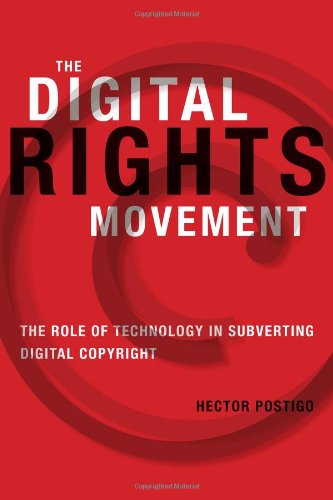
The Digital Rights Movement
by Hector Postigo
Publisher: The MIT Press 2012
ISBN-13: 9780262017954
Number of pages: 251
Description:
Postigo describes the legislative history of the DMCA and how policy 'blind spots' produced a law at odds with existing and emerging consumer practices. Yet the DMCA established a political and legal rationale brought to bear on digital media, the Internet, and other new technologies. Drawing on social movement theory and science and technology studies, Postigo presents case studies of resistance to increased control over digital media, describing a host of tactics that range from hacking to lobbying.
Download or read it online for free here:
Download link
(16MB, PDF)
Similar books
 Patent Law: An Open-Access Casebook
Patent Law: An Open-Access Casebookby S. Burstein, S.R.W. Rajec, A. Sawicki - University of Miami
This is a comprehensive casebook covering all the fundamentals of the United States patent system. It is a valuable resource for law students taking a course in patent law, lawyers looking for reference material, or inventors.
(886 views)
 A Philosophy of Intellectual Property
A Philosophy of Intellectual Propertyby Peter Drahos - ANU eText
The author argues that lying at the heart of intellectual property are duty-bearing privileges. The book is designed to be accessible to specialists in a number of fields. It will interest philosophers, political scientists, and legal scholars.
(7089 views)
 Freedom of Expression
Freedom of Expressionby Kembrew McLeod - Wikibooks
The book covers the ways in which intellectual property laws have been used to privatize all forms of expression. Kembrew McLeod challenges the blind embrace of privatization as it clashes against our right to free speech and shared resources.
(9978 views)
 Against Intellectual Property
Against Intellectual Propertyby Stephan N Kinsella - Ludwig von Mises Institute
The author argues that the existence of patents, copyrights and trademarks are contrary to a free market. They all use the state to create artificial scarcities of non-scarce goods and employ coercion in a way that is contrary to property rights.
(13187 views)